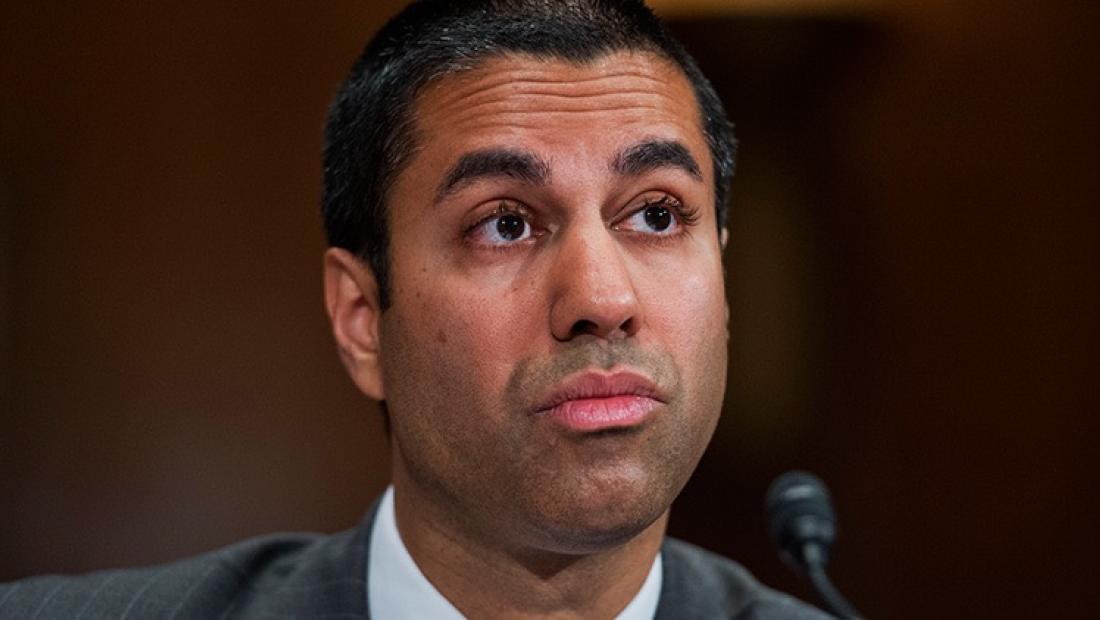FCC Votes to Free Up 1,200 MHz for Unlicensed

The smarter way to stay on top of broadcasting and cable industry. Sign up below
You are now subscribed
Your newsletter sign-up was successful
The FCC has voted unanimously to propose opening up 1,200 Mhz of spectrum for unlicensed use, five times the current unlicensed spectrum, with rules to protect against interference with incumbent users.
The FCC is opening up the 6 GHz band of spectrum to unlicensed devices—everything from laptops to Fitbits to offloading wireless traffic—using automatic frequency control (AFC) devices to prevent interference with licensed users.
All the commissioners pointed to the need to relieve congestion in the wireless band, including under the direction of Congress in the MOBILE NOW Act, which tasked the FCC with finding more spectrum for 5G.
According to commissioner Brendan Carr, even for someone with an unlimited plan from a major wireless carrier, two-thirds of their data use is offloaded onto unlicensed WiFi spectrum.
The item is a Notice of Proposed Rulemaking (NPRM), so there will still be opportunity for stakeholders to weigh in before a vote on a final framework for freeing up the spectrum while protecting incumbent users.
Commissioner Michael O'Rielly has long pushed for opening up the band, so he was a strong "aye" on the item, particularly given that broadband traffic is expected to triple by 2021. He said it was likely that the spectrum could be used without causing harmful interference, but said there were still questions that needed answering and discussions that need to be had.
One reason the 6 GHz spectrum is so attractive is that it lies between the current unlicensed bands and the potential unlicensed spectrum likely to be freed up in the C-band.
The smarter way to stay on top of broadcasting and cable industry. Sign up below
Commissioner Jessica Rosenworcel pointed out that freeing up the spectrum could lead to speeds even faster than 1 Gigabit per second.

FCC chair Ajit Pai called the proposal part of a balanced strategy of freeing up a mix of low-, mid- and high-band spectrum to provide a boost to 5G. He said the FCC should compile a robust record, then act quickly.
The FCC back in 1989 designated the 2.4 and 5 GHz bands for unlicensed—baby monitors, garage door openers. Pai pointed out that was the same year as the fall of the Berlin Wall and the launch of the series of Batman movies. He said the FCC should be able to get a final item voted before the next Batman movie was released.
“Expanding broadband services to more Americans is one of AT&T’s highest priorities, and we appreciate the Commission’s efforts to promote broader and more efficient use of spectrum to reach this goal," said AT&T executive VP Joan Marsh. "We look forward to commenting on today’s proposal to allow unlicensed use of the 6 GHz band, while protecting existing users from harmful interference. And we are encouraged by the progress being made by industry to develop a sharing proposal with the unlicensed community that ultimately could allow coexistence of Wi-Fi-type devices and microwave links. But it is imperative that any unlicensed use must be responsible for avoiding interference with the existing, mission-critical uses of this band.”
The FCC move also drew praise from Public Knowledge.
“Today’s vote to advance the 6 GHz NPRM is an important step toward ensuring there is sufficient mid-band spectrum available for WiFi and other unlicensed technologies," said Phillip Berenbroick, senior policy counsel. "The Commission correctly notes that the vast majority of mobile traffic is offloaded on to unlicensed frequencies. As consumers’ appetite for mobile services, data, and applications continues to grow, adding more unlicensed spectrum capacity is critical to making certain that U.S. spectrum policy keeps pace with consumer demand."
Contributing editor John Eggerton has been an editor and/or writer on media regulation, legislation and policy for over four decades, including covering the FCC, FTC, Congress, the major media trade associations, and the federal courts. In addition to Multichannel News and Broadcasting + Cable, his work has appeared in Radio World, TV Technology, TV Fax, This Week in Consumer Electronics, Variety and the Encyclopedia Britannica.

